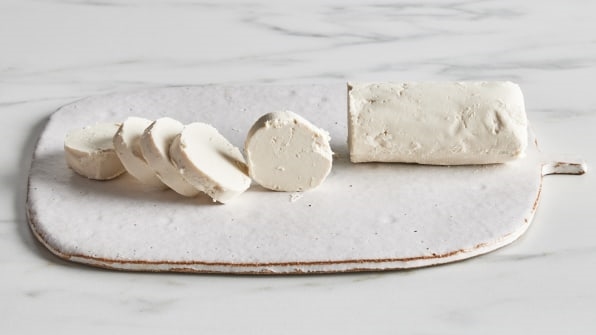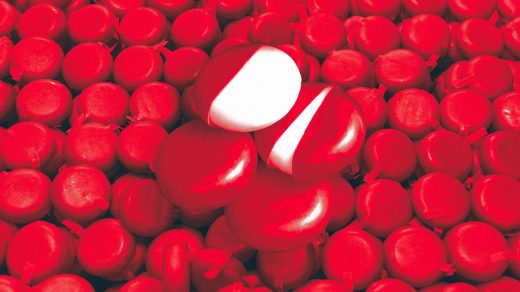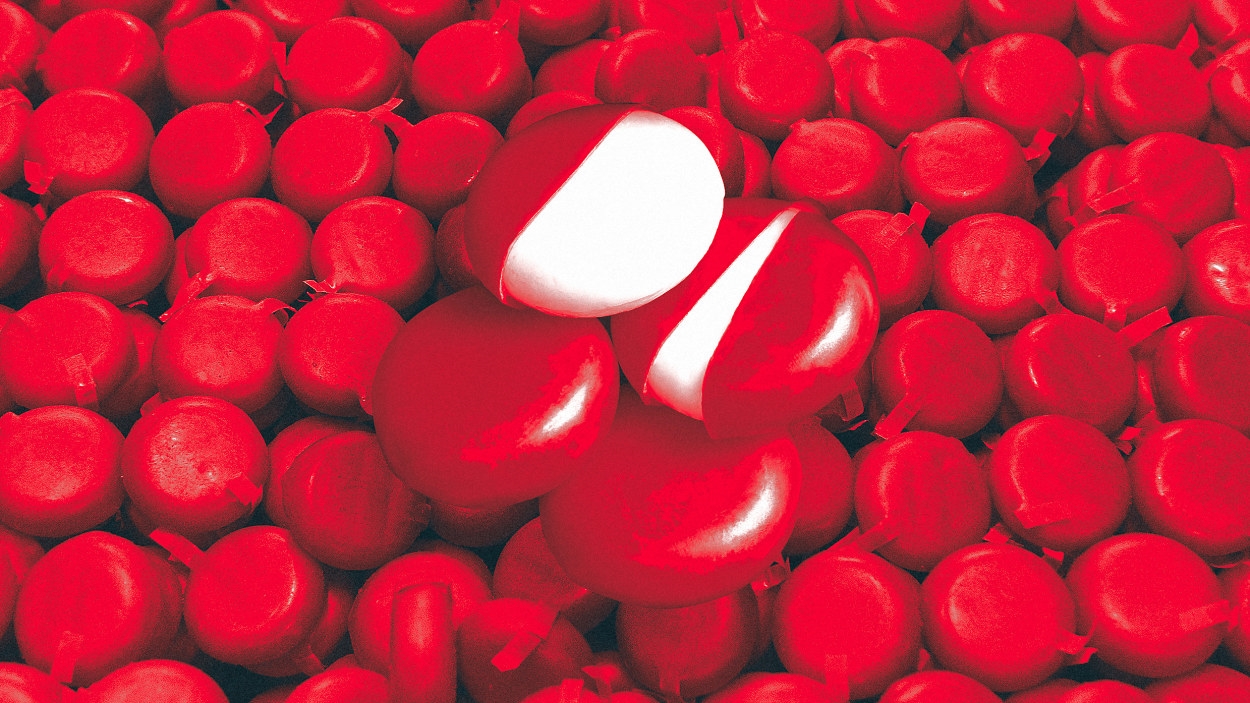How a startup is using AI to make the next vegan versions of Babybel and Boursin
Walking down the cheese aisle at the grocery store, you’re likely to recognize the Bel Group’s offerings: red wax-wrapped Babybels, Laughing Cow wedges, and boxes of Boursin. For more than 150 years, the French company has been making dairy cheeses. Now it’s looking to expand its plant-based offerings through a partnership with Climax Foods, a Berkeley, California-based biotech company that uses AI and data science to make plant-based alternatives that it says are “indistinguishable” from their animal-derived counterparts.
Bel Group has already ventured into the plant-based cheese space; in 2021 it launched a dairy-free version of Boursin, and in 2022 it launched vegan versions of Babybel and Laughing Cow, along with a new brand, called Nurishh, devoted entirely to plant-based cheeses. Together, Bel Group and Climax will create more plant-based versions of Bel products, upgrading the current dairy-free options thanks to Climax’s technology, as well as launching new products.
“When it comes to creating a product that optimally replaces an animal product, and maybe even indistinguishably so, it’s impossible to do without predictive modeling,” says Oliver Zahn, CEO and founder of Climax Foods. While lots of startups have ventured into this space by using technology to make alternative proteins, Zahn says Climax is unique in its approach to using plants more completely in that process. Some alternatives don’t use plants at all, instead turning to tech like precision fermentation to replicate dairy proteins; Climax aims to get the same results by “interrogating the plant kingdom fully.”

What that means, basically, is that Climax uses AI to look at all sorts of plants, and isolated parts of plants—their proteins, fats, flavor compounds, and so on—to find a combination that mimics dairy cheese. To do that sort of product development manually would take “billions of years,” the company says. Instead, its machine learning process can run multiple experiments quickly, even figuring out how to use those plant-based ingredients in different ways, like when heated, or coagulated with acid, to produce different tastes, textures, and flavors.
“We also interrogate animal products in extreme detail to understand why [they] taste the way they do and perform the way they do, so that we can then create these matches from plant-based ingredient combinations,” Zahn says, adding that Climax can also create alternatives that are “nutritionally superior and price competitive.” That tech also helps figure out what to change during product development: Climax’s algorithms can pinpoint what ingredient, for example, gave a product a firmer mouthfeel, and so can suggest changing that component in order to change the mouthfeel even more. (The company still values human input, though, and artisanal dairy cheesemakers are involved.)
Climax has produced its own cheese, including a plant-based blue cheese that executives at Bel tried. “I used to be in charge of plant-based acceleration at Bel, so I know how it’s difficult to have tasty cheese,” says Caroline Sorlin, Bel’s chief venture officer. But when she tried Climax’s blue cheese, she says, it was like: “‘Oh my god.’ We are not able to make any distinction between [that] blue cheese and what we are used to eating in France . . . and you know cheese in France is quite important.”
The cheeses Climax has made on its own are rolling out into restaurants first before hitting retail shelves. These offerings tend to be more “fancy cheeses,” like blue, Brie, and goat cheeses, Zahn says. This can excite customers but tend to be a little more niche; debuting in fine dining restaurants also means they’ll be rolling out on a smaller scale. But he sees a bigger way to change the food system through “more mass-market products like the ones Bel has been producing for over 100 years.”
Changing the food system is important for Bel, too. Though an iconic dairy company, ultimately it wants to balance its portfolio with 50% dairy products and 50% plant-based and fruit products by 2030. “It’s a quite ambitious goal, but we need to have that kind of goal. We have no option,” Sorlin says. “We need to be part of the food transition. If you want to feed the 10 billion people by 2050 while preserving the planet’s resources, you cannot stay within the existing food system.” (For its dairy offerings, Bel is also investing in regenerative agriculture.)
And the company says it cannot change the food system alone, which is why its partnering with Climax Foods. “We need to partner with the best in class,” Sorlin says. Bel also wants its plant-based offerings to be nutritious, affordable, on par with the texture of its dairy counterparts, and to have a low-carbon footprint.
Partnering with Bel means Climax can scale its plant-based cheeses more quickly than it could on its own; Bel took a minority stake in the startup—which raised $7.5 million in a seed round in 2020, and $27 million total to date—to accelerate that transition and ensure the company has enough resources to move quickly.
The partnership will also provide Climax with Bel’s already well-known branding: The plant-based cheeses slated to launch in the U.S. and Europe by the end of 2024 will be cobranded. “This is a magic combination in order to democratize plant-based [products],” Sorlin says. Instead of just putting plant-based products out hoping they reach consumers, consumers will now say, “‘Oh, I know mini Babybel, let’s try the mini Babybel plant-based,’” she says. “It’s easier to penetrate a household with a brand that is famous.”
(25)



